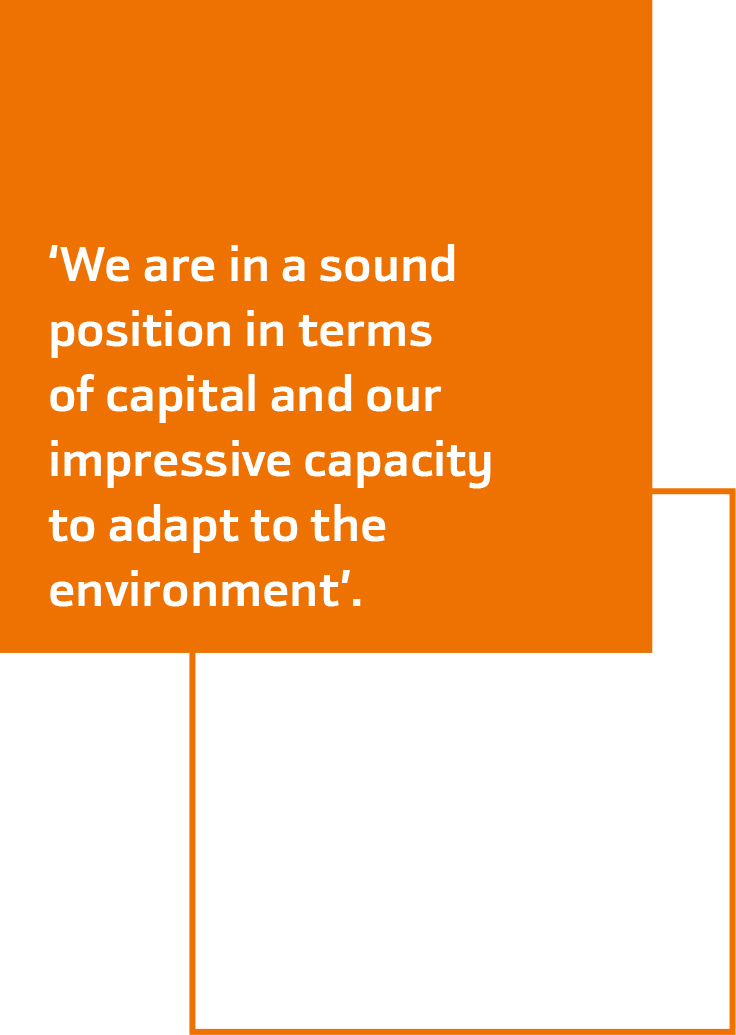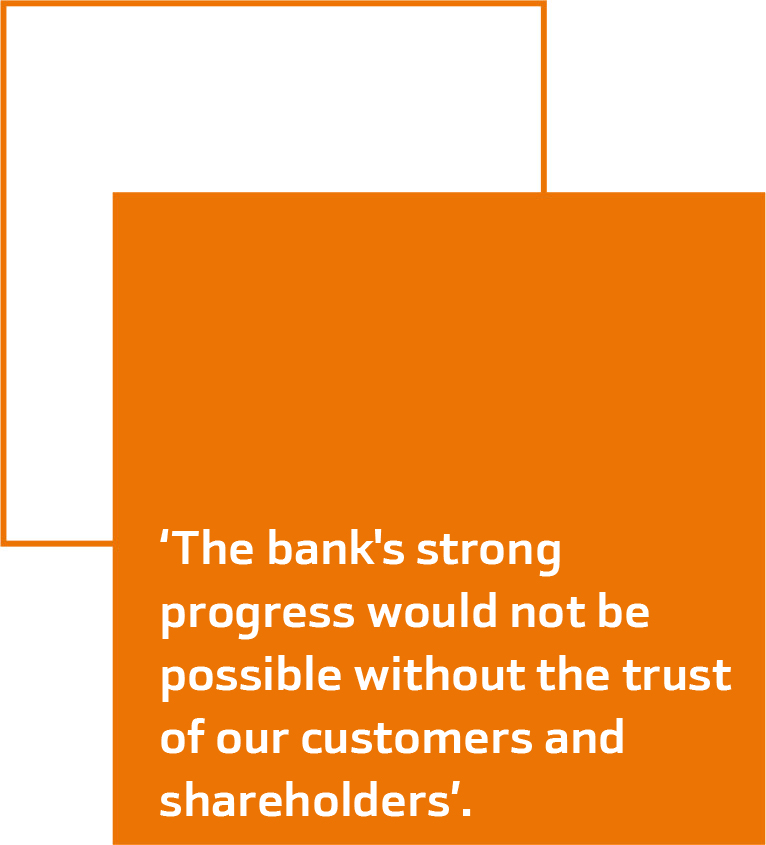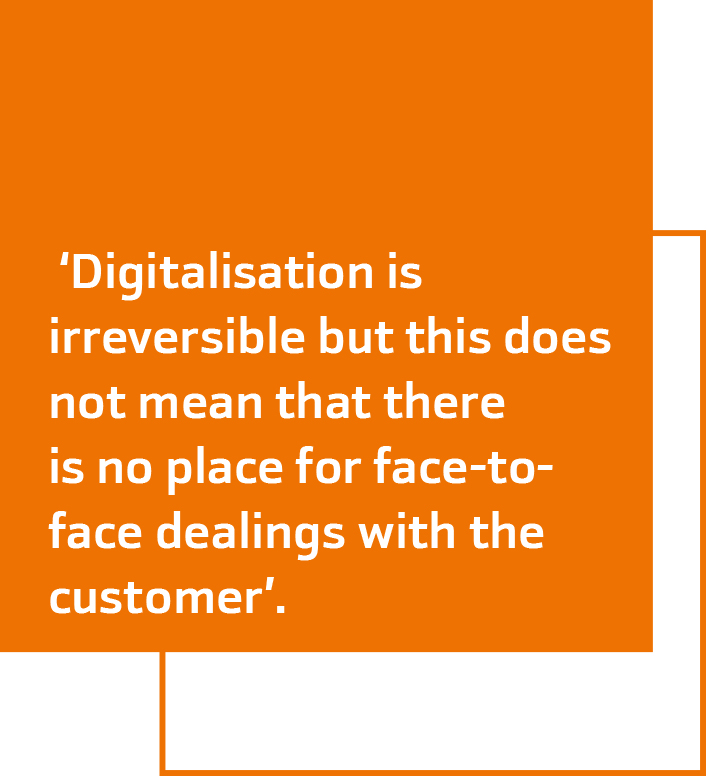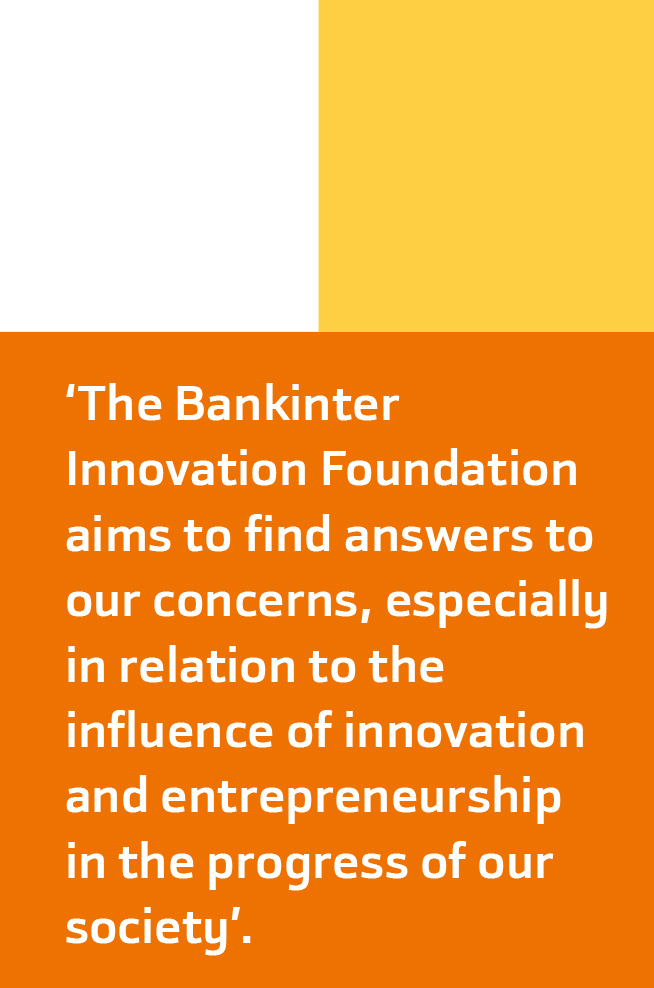


How would you describe 2018 in general terms?
It was a year of great uncertainty and this always hampers decision-making, which requires clarity and stability. In Spain we had an unexpected change of government. In our immediate environment, Brexit and the budget dispute with Italy weakened the internal cohesion of the European Union. And globally the new wave of protectionism, fuelled by the Trump administration in the US, slowed growth and sowed doubts about the future development of global trade.
The effect of all this was felt by the Spanish economy, which lost momentum compared with previous years, with a slight downturn of the export sector coinciding with a slackening of domestic demand.
So, it has been a complicated year?
Yes, albeit with positive news too. Ultimately Spain still had the most buoyant economy in the European Union and job growth was strong. Inflation withstood the rise in oil prices and the persistence of expansionary monetary policy helped investment, especially in housing, with an activity as labour-intensive as construction boosted as a result.
This illustrates the vitality of the Spanish economy and its capacity to provide us with good news even in challenging times. At this juncture it is also necessary to mention the political instability. The dispute in Catalonia harms the perception of Spain overseas and hampers investment. And the current government has fragmented and heterogeneous parliamentary support, which makes it tougher to formulate coherent economic policy.
What is the outlook for the near future?
By nature I am an optimistic person and I remain hopeful that sooner rather than later common sense will prevail because we all need a dose of it. The Spanish economy has been put back on a sound footing, is more competitive and simply needs a slightly smoother path. There are pending structural reforms that should not be delayed, though the tight electoral schedule ahead for Spain doesn’t help. Those undertaken at the start of the current decade were key to recovery, and this should prompt reflection.
With regard to the threat that the resurgence of protectionism represents for the global economy, I would like to state that globalisation is irreversible and that there is no place for the obstacles to free trade imposed supposedly in national interests. These are movements which may temporarily enjoy popularity but, in the long term, will adversely affect people’s wellbeing. In any event, I don’t think that protectionism has much potential.
And how has the financial sector performed against this backdrop?
I would highlight two things in 2018. On the one hand, the persistence of a low interest rate environment, which obliges us to seek new sources of revenue to maintain margins. And, on the other, the reduction of losses due to asset impairment following the major restructuring efforts undertaken by banks. The former has resulted in the sector extending its value-added offering, with high-quality services based primarily on consultancy. The writedown of assets, in turn, explains the improvement in capital adequacy levels recognised in the stress tests conducted over the year by the European Central Bank (ECB) and the European Banking Authority (EBA).
Bankinter obtained an excellent result in these tests, even better than those of the other Spanish financial institutions, which overall were very good. Even in the most adverse scenario, our bank would be one of those that cope best thanks to its robust position in terms of capital and its impressive capacity to adapt to the environment, which has already been showcased in the worst moments of the crisis. This result represents resounding recognition for the work done by Bankinter, whose two cornerstones have always been, and will remain, rigour and innovation.

What is your impression of the controversy over the mortgage tax?
It isn’t something that had or has anything to do with banks. After all, fiscal decisions are taken by parliaments and governments, not by us. The banking industry restricts itself to complying with the prevailing regulatory framework. That is what we did when the view was that this tax should be paid by customers, which has been longstanding, and this is what we have done since it was decided that it should fall on financial institutions. Which doesn’t mean that we are comfortable with the legal uncertainty that some situations create. Nor, of course, with banks being blamed for something that isn’t their responsibility. And, of course, deciding who pays what taxes certainly isn’t.
How would you assess Bankinter’s results in 2018?
In light of the difficult environment, which I mentioned earlier, I think our results are excellent. Our Chief Executive Officer explains them in great detail in the following pages, but I would like to take this opportunity to mention the sterling endeavours once again of our professionals. Thanks to these efforts, the main lines of business of Bankinter continued to grow, the quality of its assets improved and the capital adequacy level again comfortably surpassed regulatory requirements.
None of this would have been possible, however, without the trust of our customers and shareholders, to whom we are profoundly grateful and will continue to strive to warrant this trust. We remain committed to providing our customers with an excellent and ever more efficient service wherever they need it and by the means best suited to their particular circumstances. We can also assure shareholders that we will be unstinting in our efforts to create value, so that their investment is duly remunerated.
In this respect, the Board will propose to the annual general meeting distribution of a cash dividend of 263.2 million euros against 2018 earnings, a 6.3% year-onyear increase, equating to 0.29286115 euros per share. We believe this is a reward that is line with results and at the same time ensures the conservation of capital and the maintenance of an appropriate level of capital adequacy.
Is Bankinter a sustainable bank as well as a profitable bank?
We must all contribute to a better world from our respective areas of activity and to the best of our abilities. At Bankinter we are striving to achieve this improvement through our multi-year ‘Three-in-a-row’ plan, the latest version of which spans the 2016-2020 period. The plan owes its name to the three cornerstones of Bankinter’s Sustainability Policy: economic, social, and environmental. Its goals are numerous but I would sum them up in five. First, establishing a balanced, transparent and clear relationship with our stakeholders (shareholders, customers, employees, suppliers and society in general). Second, facilitating the financial integration of people with a disability. Third, ensuring the responsible management of people, who are undoubtedly the bank’s most important asset. Fourth, contributing to the development of the community. And fifth, minimising our impact on the environment.
In recognition of all these endeavours, last September Bankinter was included in the Dow Jones Sustainability World Index. This index ranks us as the 13th most sustainable bank in the work, which should be a source of pride for our entire workforce.
What role does the Bankinter Innovation Foundation play in this?
A key role because it aims to find answers to our concerns, especially in relation to the influence of innovation and entrepreneurship in the progress of our society. It has four programmes focused on achieving this: ‘Future Trends Forum’, which according to the prestigious ranking compiled annually by the University of Pennsylvania is the number one thinktank in Spain and the 27th in the world dedicated to science and technology; Akademia, which fosters a spirit of innovation and entrepreneurship amongst university students; ‘Entrepreneurs’, a support programme for entrepreneurship as a source of sustainable wealth and short-term job creation; and ‘Cre100do’, which helps SMEs to grow and expand internationally. Over time I am convinced that all this activity will be considered one of Bankinter’s most important contributions to Spanish society.

How is the digital transformation progressing?
It is a relentless process. We have been aware of its importance for many years and have been taking action to make significant progress. The result of these endeavours is that today the vast majority of our customers use digital channels and a third only communicate with the bank digitally. In keeping with our commitment to digital banking, last year we announced the acquisition of EVO Banco in Spain: this is a highly technologically developed bank with a significant portfolio of customers in our country, most of whom are young savers with a pronounced digital profile. Its growth potential is huge and I am convinced that together we can get it to perform even better.
But the fact that digitalisation is irreversible does not mean that there is no place for face-to-face dealings in the financial world. Banking activity is based on trust, which is why the human factor is essential.

This has always been our view at Bankinter, where we are in the vanguard of innovation but never neglect the positive aspects of traditional banking. We have led the way in many areas, from telephone to digital banking, but have never lost sight of the fact that nothing makes sense unless it is rooted in values which can often only be transmitted face to face. That is why I would like to reiterate my conviction that people are our most important asset and to conclude by expressing my acknowledgement and gratitude to the extraordinary human team of Bankinter Group for their enthusiasm, their commitment and their brilliant performance in 2018.
We use our own and third-party cookies to improve our services and show you advertising related to your preferences by analyzing your browsing habits. If you go on surfing, we will consider you accepting its use. You can get more information, or know how to change the configuration in our Cookies Policy. Accept